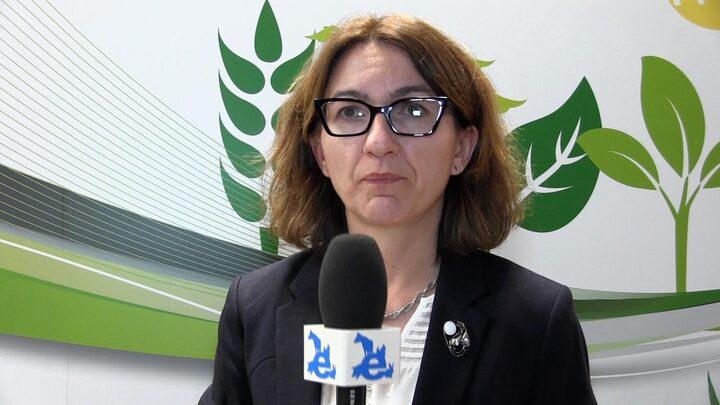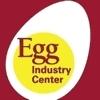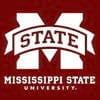Explore all the information on
Poultry egg quality
Egg quality defines those characteristics of an egg that affect consumer acceptability and preference. Components of quality include shell quality and interior egg quality for shell eggs, and interior egg quality for further processed eggs. The quality of the egg once it is laid cannot be improved. Hence, its maintenance is mostly a preventive process. Egg quality is influenced by several factors including rearing, temperature, humidity, handling, storage, and egg age. Shell quality: There are five major classes of shell defects: integrity, texture, shape, color, and cleanliness. Internal egg quality involves functional, aesthetic and microbiological properties of the egg yolk and albumen. The proportions of components for fresh egg are 32% yolk, 58% albumen and 10% shell. Regarding exterior egg quality, the shell of each egg should be smooth, clean and free of cracks. The eggs should be uniform in colour, size and shape.
Steve Leeson (Professor Emeritus, University of Guelph) comments on the use of amino acids in broiler nutrition and the performance of low energy diets, in this Engormix interview....
Comments : 0
Recommendations: 4
I. INTRODUCTION Phytogenic products are used as an antibiotic alternative, with other alternatives like prebiotics, probiotics, organic acids and other products with antimicrobial properties. The ability of phytogens to reduce the load of significant pathogens such as Clostridium (2020), Escherichia (Zou et al., 2016), and Salmonella (Abudabos et al., 2016), and improve the health and performance of chickens makes them increasingly popular. Phytogens also improve critical layer...
Comments : 0
Recommendations: 0
Early warning systems and decision-making tools have the potential to forecast and simulate egg production losses, allowing producers to implement corrective actions pre-emptively. The aim of this study was to create an egg loss forecasting model for free-range egg producers. Commercial farm records comprising of 281 Australian free-range flocks dating from January 2010 until November 2021 were used. Flocks were located in 4 states, with sizes ranging from 10,000 - 40,000 laying hens....
Comments : 0
Recommendations: 0
by Lyndsey Johnston
Insects and derived products are possible alternative feedstuffs to improve the sustainability of the livestock sector due to several promising attributes such as limited space requirements for growing larvae, short productive cycles, limited water needs and the suitability of some species to mass rearing. Also, some insect species can contribute to circular economy models by upcycling organic side-streams from other industries into high-value...
Comments : 1
Recommendations: 0
In the past, nutritionists did not pay attention to fibre in poultry feed formulations. Step by step the researcher as well as the industry in this decade has realised the importance of fibre in a poultry feeding strategy. The use of fibre in poultry has been, and still is, a major research topic at universities around the globe. Professor Mateos group from Spain as well as Prof. Svihus from Norway did a lot of research to explore the effect of different fibre sources on poultry health...
Comments : 4
Recommendations: 7
INTRODUCTION Natural medicinal products originating from herbs and spices have been used as feed additives for poultry (Guo et al., 2004). Compared with synthetic antibiotics or inorganic chemicals, these plant-derived products have proven to be natural, less toxic, residue-free, and are thought to be ideal feed additives in feeds for animal production (Wang et al., 1998). Any attempt to improve poultry production and increase its efficiency, therefore, needs to focus on the...
Comments : 0
Recommendations: 0
High stocking density and environmental factors such as acute heat stress, health challenges, bacterial or viral exposure, and mycotoxin-contaminated diets may cause serious stress of laying in modern intensive egg production systems. Laying hens under immunological stress are susceptible to pathogen infection due to an imbalance in immune response and cecal microbiota. Laying hens that are raised under the conditions of intensive farming and high stocking densities are exposed to...
Comments : 1
Recommendations: 1
Dr. Anne-Sophie Valable (Product Manager at NOR-FEED) explains how a dry grape extract can impact a bird’s health, during this Engormix interview....
Comments : 0
Recommendations: 1
.jpg&w=3840&q=75)

Biodegradation of Mycotoxins: A Biotechnological Innovation for Safe Animal Feed
Suggested link
The holiday season is once again here, which means many kitchens will be filling up with baked goods and savory dishes. It is also the time of year when the use of eggs increases for all of those delicious dishes! However, eggs can be a potential source of Salmonella bacteria that can cause illness or in rare cases even death. Here are some tips to...
Comments : 0
Recommendations: 0
Plant-derived essential oils (EOs) contain functional phytochemical components that are used as feed additives to improve gut health and reduce the need for antibiotics. The injection of EOs into fertile eggs has the potential to influence the developing embryo including the gastrointestinal tract. This in turn may mitigate intestinal susceptibility and regulate gut microbial composition, resulting in long-term benefits in the chicken's life. However, some gaps in the in-ovo injection...
Comments : 0
Recommendations: 0
I. INTRODUCTION Consumer demand for organic and free-range poultry products is driving the commercial egg industry away from conventional housing systems towards free-range housing systems that allow birds access to the outdoors. Whilst these systems are considered higher welfare, they also carry more health risks that can impact the intestinal health of the bird, such as greater exposure to parasites as reported by Permin et al., (1999). Intestinal helminths such as nematodes and...
Comments : 0
Recommendations: 1
I. INTRODUCTION With the recent COVID-19 pandemic disrupting the regular supply chain in agriculture and threatening food security, it is imperative to look for innovative ideas to meet the population's food demand (FAO, 2021). The agriculture sector is pressured to offer sustainable, economical, and ethically-produced animal protein. Egg, a cheap and relatively easy-to-produce commodity, is one of the best candidates for such protein. Thus, there is a surging increase in layer...
Comments : 0
Recommendations: 0
Duarte Neves (Zinpro) The poultry industry is facing a problem with the fertility of broiler breeder eggs. The use of elevated amounts of trace minerals such as zinc (Zn), manganese (Mn), and copper (Cu) within a broiler breeder diet has been previously linked to an increase in eggshell quality, which in turn may lead to an increased fertility rate. A parameter that has been linked to an increased eggshell quality is shell translucency. The...
Comments : 0
Recommendations: 0
Duarte Neves (Zinpro) This study aims to evaluate shell translucency as a novel eggshell quality parameter to predict hatchability of fertile eggs. A total of 22,140 eggs were collected from 738 broiler breeder flocks between 25 to 65 wks of age, from multiple commercial hatcheries in the US. Translucency was completed with Zinpro® BlueBox TM using a 3-point score system: TS1 = none or few small translucent spots; TS2 = several...
Comments : 0
Recommendations: 0
Alin Khaliduzzaman (University of Illinois Urbana Champaign) comments on his research presented at the IPSF regarding sensing technologies and information science to improve egg quality control, in this Engormix interview during IPPE 2024 in Atlanta, USA....
Comments : 0
Recommendations: 0
John Boney (Pennsylvania State University) New generations of feed enzymes are included to enhance nutrient utilization. This study was designed to evaluate the efficacy of a new generation phytase, HiPhorius (HP), and protease, ProAct 360, when fed to peaking hens. Dietary treatments included Positive Control (PC), Negative Control 1 (NC1) at 0.15% nPP, NC1+600 FYT/kg HP, NC1+900 FYT/kg HP, Negative Control 2 (NC2) with a 2% crude protein (CP)...
Comments : 0
Recommendations: 0


The Relevance of Starch-Protein Digestive Dynamics in Crude Protein-Reduced Broiler Diets
Suggested link
Alin Khaliduzzaman (University of Illinois Urbana Champaign) Some of the continents and countries might suffer severe food shortage in the next few decades due to climate changes, global unrest, and economic instability. Therefore, we need major technological advancement for egg and poultry production industry to deal with global animal food security and poultry welfare issues. The current hatchery practices, post-hatch grading of day-old chicks,...
Comments : 0
Recommendations: 0
Mike Persia (Virginia Tech) Experiments were conducted to determine the bioavailability of fine ground aragonite (FGA) using 0-14 d old broilers and to determine the use of FGA on performance, eggshell quality, and tibia ash (TA) of laying hens from 28-56 wks. In experiment 1, 450 as hatched Ross 708 broilers were fed a basal diet without either LS or FGA containing 0.35% Ca and LS and FGA additions resulting in 0.43, 0.51, 0.59, and 0.67% Ca. Body...
Comments : 0
Recommendations: 0
Duarte Neves (Zinpro) comments on how translucency can be used as a novel eggshell quality parameter to predict the hatchability of fertile eggs, in this Engormix interview during IPPE 2024 in Atlanta, USA....
Comments : 0
Recommendations: 0







.jpg&w=3840&q=75)













.jpg&w=3840&q=75)

.jpg&w=3840&q=75)




.jpg&w=3840&q=75)
.jpg&w=3840&q=75)


.jpg&w=3840&q=75)










